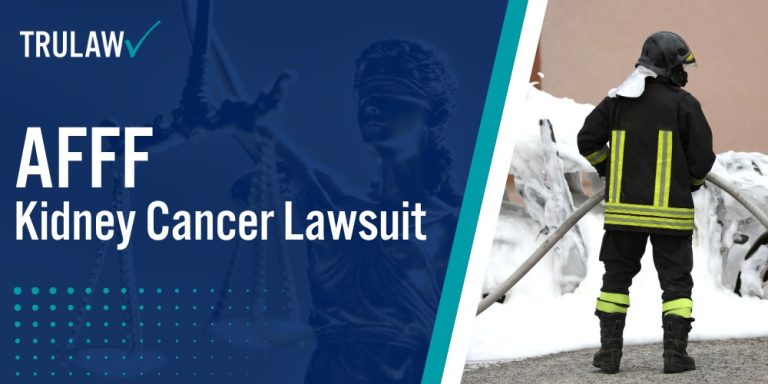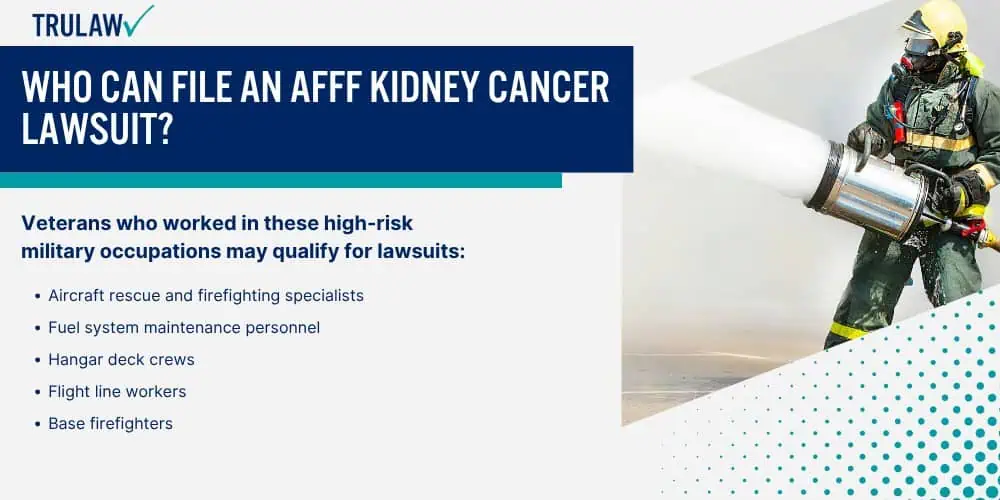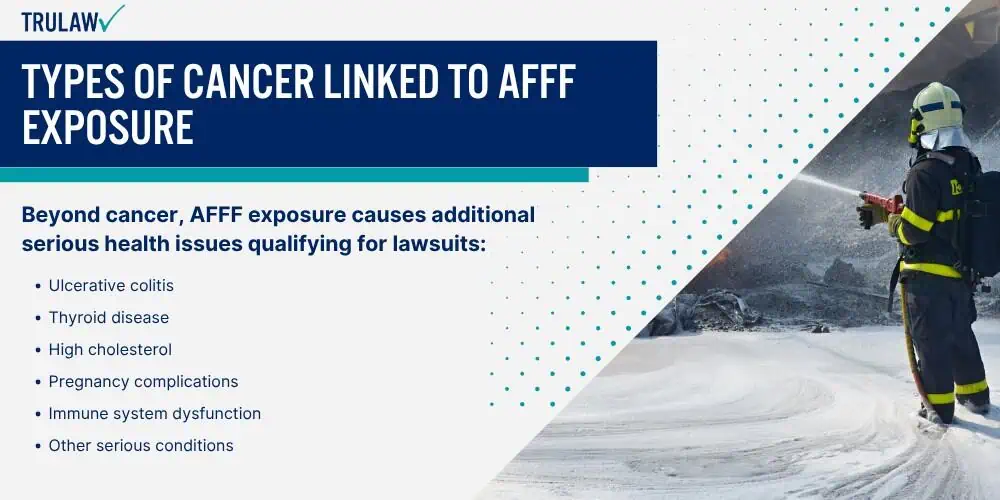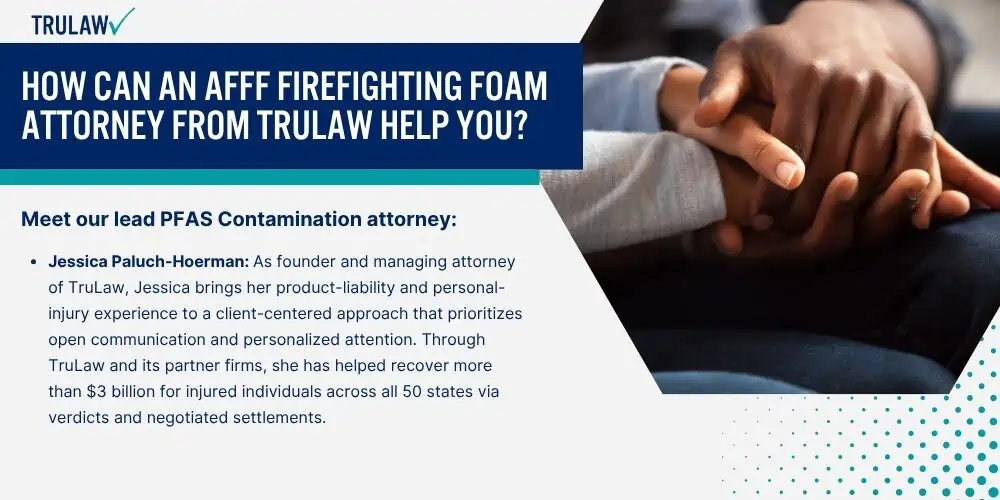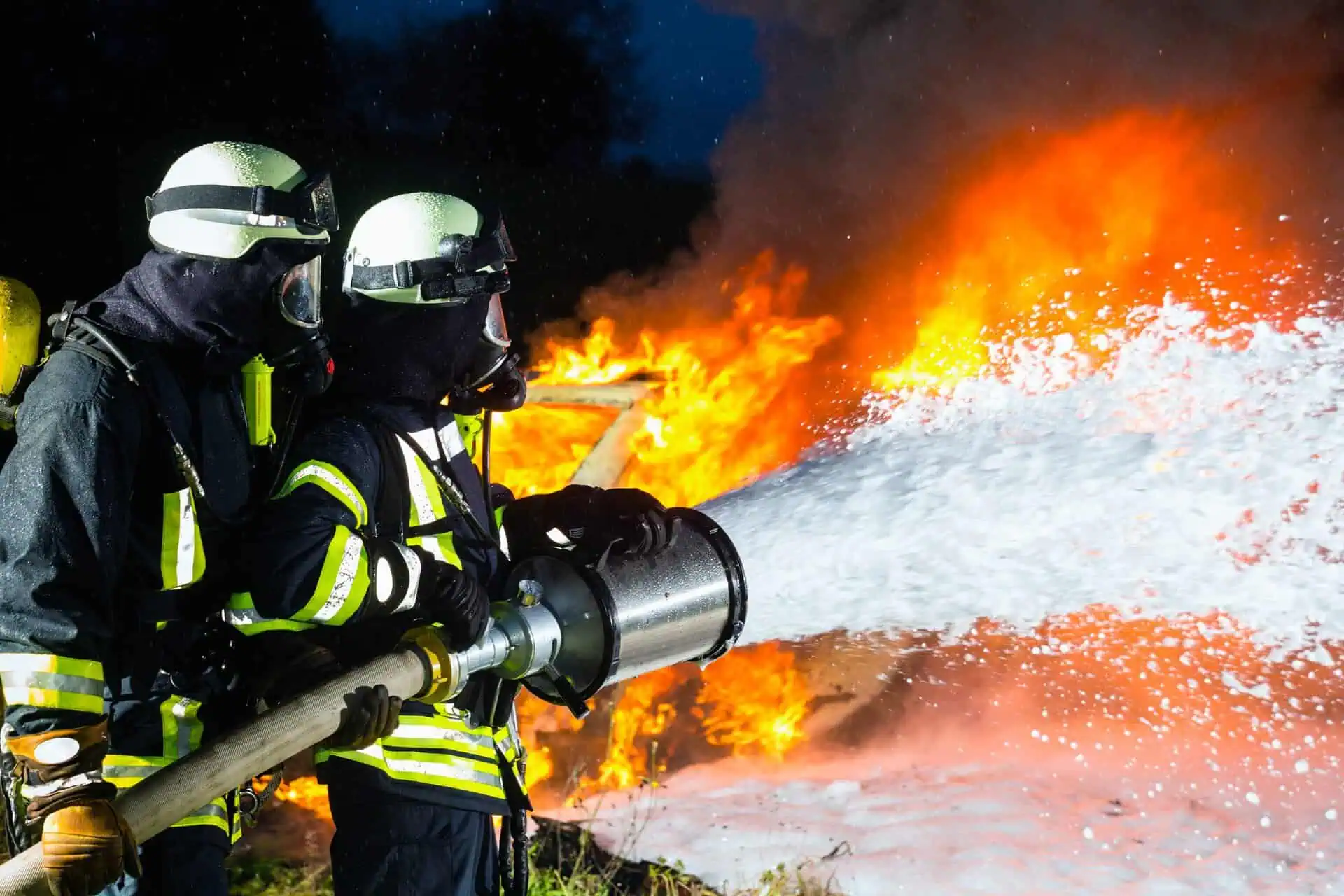Aqueous film forming foam (AFFF) is a firefighting suppressant used since the 1960s, creating severe health risks for those exposed.
Military bases, airports, and fire departments relied on AFFF to extinguish fuel-based fires quickly.
The connection between AFFF exposure and kidney cancer has become undeniable through decades of scientific research and internal company documents.
What is Aqueous Film Forming Foam (AFFF)?
AFFF contains per- and polyfluoroalkyl substances (PFAS), known as forever chemicals.
These toxic chemicals don’t break down naturally and accumulate in the human body over time.
The foam creates a barrier between fuel and oxygen, preventing fire spread.
PFAS chemicals in firefighting foams contaminate groundwater, drinking water, and human bloodstreams through skin contact and inhalation.
How PFAS Chemicals in AFFF Cause Kidney Cancer
PFAS exposure from firefighting foam affects kidney function through multiple pathways.
These forever chemicals accumulate in kidney tissue at higher concentrations than other organs.
Studies show PFAS interferes with cellular processes and damages DNA in kidney cells, causing adverse health effects over time.
The chemicals trigger oxidative stress and inflammation, leading to cancer cell development.
The National Cancer Institute found a 16% increased kidney cancer risk for every 10 ng/mL increase in blood PFOA levels.
Firefighters show PFAS blood levels 20-30 times higher than the general population.
Research confirms that prolonged exposure to PFAS increases the likelihood an individual has at developing kidney cancer.
A 2023 study revealed that firefighters face double the kidney cancer risk compared to other workers.
Scientific Evidence Linking AFFF Exposure to Kidney Cancer
Multiple peer-reviewed studies establish the connection between AFFF firefighting foam exposure and kidney cancer.
The Environmental Protection Agency (EPA) classified PFOA as a likely human carcinogen based on this evidence.
A landmark study of 70,000 people near a DuPont facility found direct links between PFAS and kidney cancer.
Researchers documented a dose-response relationship, meaning higher exposure levels caused more cancer cases.
The International Agency for Research on Cancer upgraded PFOA to “possibly carcinogenic to humans” in 2024. Military studies show personnel exposed to AFFF have elevated kidney cancer rates compared to unexposed service members.
Court documents reveal manufacturers who supplied AFFF firefighting foam knew about cancer risks decades ago but failed to warn users.
Internal company studies from the 1970s showed PFAS caused tumors in laboratory animals.
